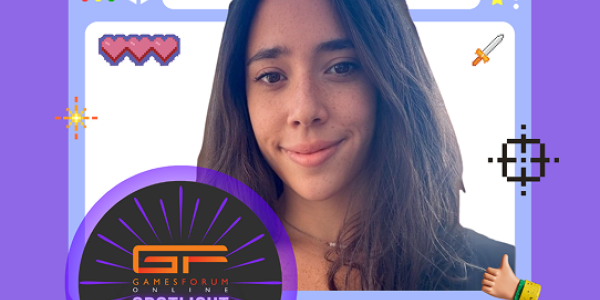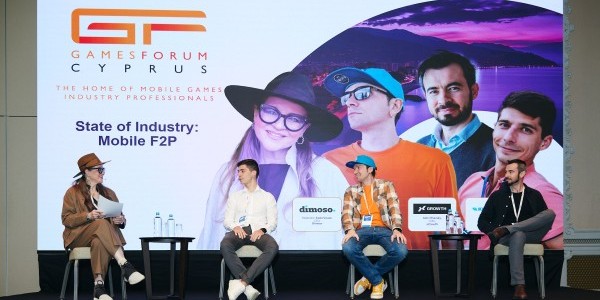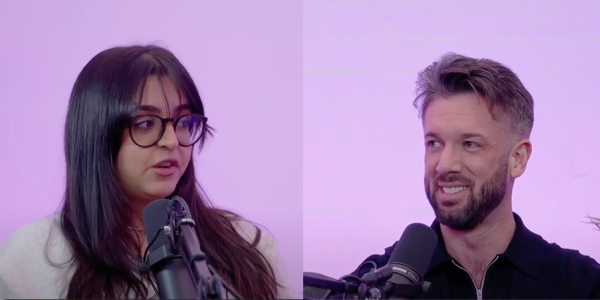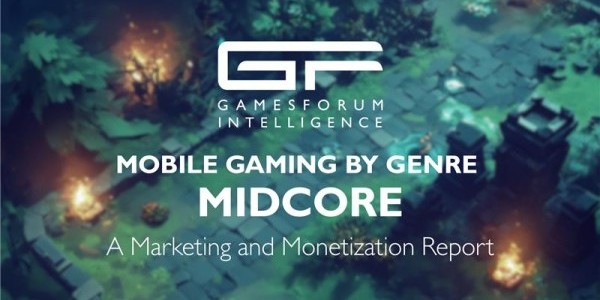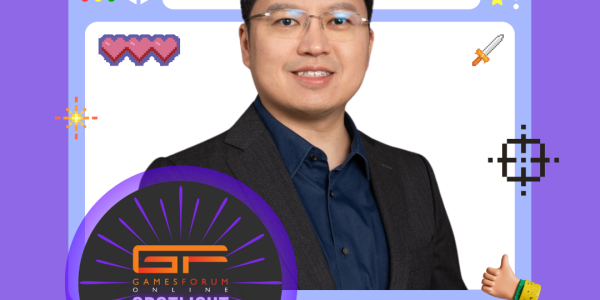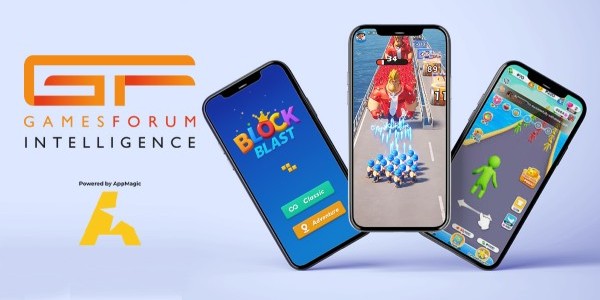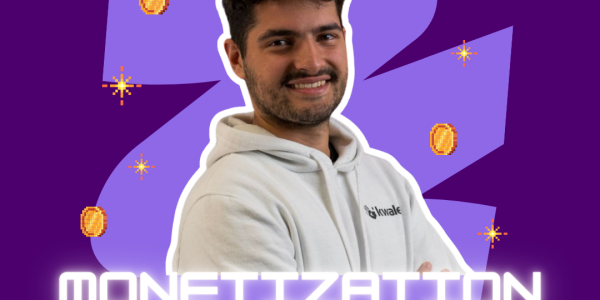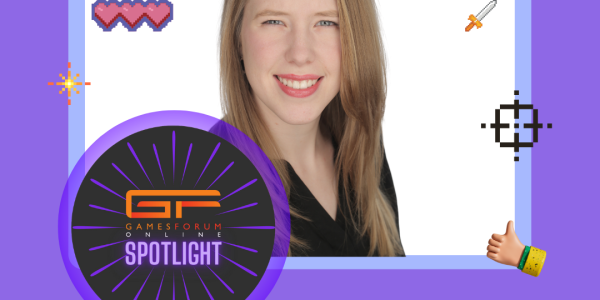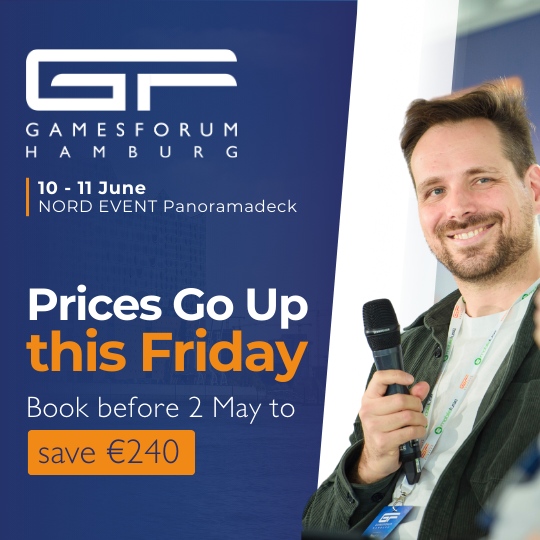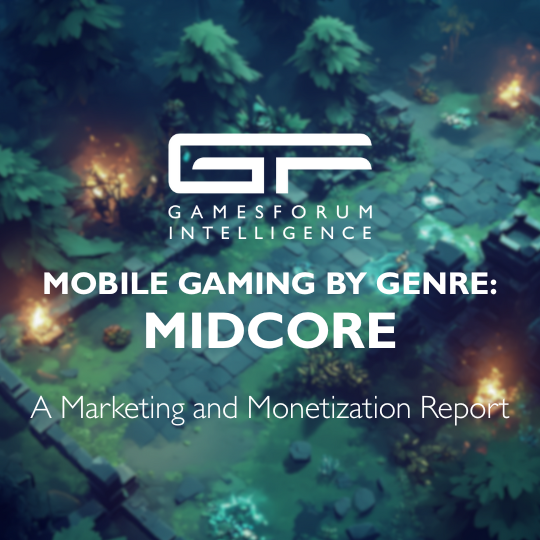Gamesforum Meets XL: Stefano Accossato, Head of UA & Ad Mon TutoTOONS

In this long read Gamesforum Meets with Stefano Accossato, Head of UA and Ad Monetization at TutoTOONS, John and Stefano discuss ad monetization in kids' games, the challenges of ensuring Ad Quality, CMP implementation and Stefano’s mission to clean up the Baltic Sea
John Speakman: Hi Stefano, great to speak with you today – let’s start by telling us a little bit about who you are, and your work at TutoTOONS.
Stefano Accossato: All right, so I've been in the gaming industry now for five years. Started in February, 2019. Before that, I was in ad tech mostly working with customer support, and leadership as well. That's what eventually got me, once I joined the gaming industry to be involved in AdMon and UA.
I joined as a quality assurance guy, as a game tester. Been doing that for six months, and then one of the co-founders of TutoTOONS needed help with the ad monetization side of things, and the ad quality side of things. We started first on ad quality, and then we moved into expanding the ad monetization part of the business, and then a few months later the UA as well.
Then pretty quickly, we saw that my efforts were not enough, and then we started to build teams to the point of also having people leading those teams, in UA and AdMon, and me stepping up as Head.
John: How did QA... Why is it advantageous within AdMon, or rather how did it lead you to the AdMon journey?
Stefano: Yeah, it was more like my previous experience in ad tech that led me to AdMon, because it was a very easy step from the previous experience I had, knowing already most of the terms in the industry, to eventually get into the operational aspect of the business, with optimizations mostly.
The QA part first, really helped me to get into the industry, to understand the games, to understand what kind of problems they have, in the process of finishing up and polishing and finding bugs, and getting it ready for publishing. I saw everything that there is to know about a game because you really need to understand everything before you say that it's fine and it's ready to go live.
This gave me a very detailed, but at the same time, broad understanding of how the games work, and what makes a game ready, overall. So, knowing all the infrastructure behind made it easy to then step into something else, but still understand everything that was going on the game side.
So stepping into AdMon from there was an advantage. My work was a lot about optimizations, like waterfalls, network setup, eventually network partnerships, and onboarding integrations, and so forth, much less on the monetization design part, mainly because of the nature of our games.
TutoTOONS makes games for kids. So even though the theme of a game is unique, the mechanics can be similar game to game, therefore as well the ad monetization design tends to stay similar, as we cannot go crazy with too many experiments, or too weird formats. Otherwise, we would breach policies and create more problems.
John: So, we'll come back to the AdMon side of things, but because you're heading up the UA as well, how does marketing kids' apps differ from the wider games industry?
Stefano: When it comes to UA, the main limitation is that we cannot use identifiers.
So even before the ATT apocalypse happened, we were already excluding the IDFA from our MMP tracking links. Kids’ games industry lost the GAID on Google already in April 2022. So, we always dealt with marketing without user IDs and all the things that can be done with them.
So, we monetize with only contextual ads, and at the same time, we run UA to a broad audience.
There is no possibility to run a retargeting campaign, for example, because you don't have the IDs to retarget. But when it comes to networks, we can test the same networks as everybody else, with some exceptions when it comes to social media.
And as a consequence of the limitations on the AdMon side, it’s more challenging to grow LTVs and therefore scale CPIs.
John: You mentioned obviously ad quality, and ad quality being by definition, in kids' games, it's going to be a major concern and priority. You also mentioned that there are specific networks that you can use. I'm guessing folks like SuperAwesome. Does that actually make ad quality easier because you're working in partnership with ad networks whose concern is parallel to yours? Or would you say it's still a number one concern?
Stefano: Still our number one concern. What you say is right, that when we work with kids’ specialized networks we don't have to spend much time checking their ads, because we know they are fine. But we don’t rely just on kids’ networks to monetize our games, as there are SDK networks that respect kids’ games compliance.
But to use those, we need to have a very strong ad quality process in place, and that's where we actually started with the ad monetization side. First, we wanted to make sure that we know how to tackle this issue, and of course, the way we started it four years ago, was very different than how it looks today.
So why we want to put an effort here is because even though every single network that we use follows compliance, still the logic behind showing a safe ad in a kids’ game can fail.
That's why we use the tools that are given by the mediation of course, but we also build in-house a whole dashboard that we keep optimizing and improving all the time, in order to streamline our process.
John: Because of the focus on ad quality, because of the focus on brand safety, has that allowed you to partner more with brands, than maybe other folks in the industry?
Stefano: Of course, our main partnerships are with kids’ brands. It's much harder to collaborate with brands that are not directed to kids, even though the technology that we would use to serve those impressions is compliant and safe. However, the brands may see this as a risk due to the many rules.
But when it comes to kids’ brands, there is interest. We are between the top inventories for some of the biggest brands out there. They like our inventory overall, and they're as interested as any other brand, in any other game, about the reach, the active users, and so forth, and the kind of formats that can be used. But, what they really like about our games is that it's a safe environment, and they will not have any risk of being associated with some violent content, or questionable content.
So, this makes them trust us, and there is almost no question asked. And then the next step that we're also working on, which is more demanding, is how can we integrate these brands within the game itself, and not just as an ad, but also as a part of the game.
We developed in the last few years four games that were IP-based. We have a brand licensing team as well in the company, with two games released on the famous brand L.O.L., that almost every kid knows.
John: Interesting. So you mentioned a few questions asked, what is the question you do get asked by brands?
Stefano: Well, if you would think in terms of the licensing agreements that we have, we always work in very close collaboration with them on any aspects of the game/content and the brand representation is of the upmost importance.
When it comes to ad monetization, mainly the questions are about what is our audience. Is it mostly boys? Is it girls? Are we talking about four to six years old, or are we talking about a wider range? Are we talking about a range closer to teenagers?
I would say, yeah, these are mostly the questions that are about how they can understand what kind of audience they're reaching through us.
John: And are they okay with aggregated big-picture data, because obviously you can’t track unique players?
Stefano: Yes, they're fine with aggregated data, with non-user level data, because they want to comply with the same rules that we want to comply with.
John: CMP, I know it was a few weeks ago now, but how has that affected you guys, or were you basically already best practice, anyway?
Stefano: Yes and no. The first thought that I also had when I heard for the first time about the CMP requirement was, "Okay, we are fine. We are not sharing any personal identifiers, so why we should care about this new regulation coming in?"
I was wrong. It was a hard time end of Q3 and Q4 last year, to figure out everything about this, because you follow logic and you say, "Okay, we don't collect any user information, we don't need consent from the user, we don’t need it in the first place." That would make total sense and would be enough if it would stay in the context of two things, personalized and contextual ads. If only these two exist, therefore, if you don't give consent, you get contextual which is the only type we allow in our games. And that's how non-TCF vendors still work nowadays.
But Google, eventually added as well a third item, a third type of ad as we all know by now, called limited ads. So, the real question was like, "Okay, so if you don't get consent, what do we get? Contextual ads or limited ads?" That's when we understood that we needed to do something because the answer from Google was that we would get limited.
So, we needed to do something here, intending to ask for consent only for contextual ads, as again, we don’t want and cannot ask for consent on personalization. Eventually, we understood that Google CMP would not support our case and we needed a third-party provider.
John: So even though on the surface level, you guys were already ahead of the compliance curve, because of the nature of the audience, actually you had a much harder CMP journey.
Stefano: Exactly. Yeah, it was crazy. I almost lost my mind on this. Yeah.
John: It was like basically catch-twenty-two.
Stefano: You could say that…
John: Oh, fascinating. Okay.
Stefano: It was interesting. It was interesting.
John: When did you complete the project?
Stefano: We got all our answers probably at the beginning of December, and then there were also some integration issues to be solved, and we had a final version that worked, and we confirmed it worked, probably just before Christmas. Then we started the update of all the top games, and we managed to reach the deadline of the 16th of January, but considering we have 50 games in each app store, it was quite a QA effort here, and they were not too happy about it, but they managed to do it as they are a really efficient team.
John: Amazing. That must have felt good when it was finished.
Stefano: Yeah, totally!
John: So on a different note, you mentioned to me the other week that you've got a pretty cool project coming up, and I think people are going to want to hear more about this, so...
Stefano: Yeah, correct. So the project is called Save the Baltic Sea and it is an initiative that started in Lithuania.
Why is that? This is because, as you can read on our website savebaltic.eu, the Baltic Sea is one of the five most polluted seas in the world. And it's here, where also a lot of the gaming industry is.
Our goal is to be educational, to raise awareness on the topic, and for the people that already know about this, and institutions that already know about this, to bring back the conversation, and try to make everybody understand that it's not just Lithuania, Sweden, or Poland, that should do something about this, it's a common effort.
John: What about the people involved? Is there a team?
Stefano: So, there is a team that has been working for quite a few months already on the preparation, and lately, a second team formed that will hike for the whole perimeter of the Baltic Sea. So that's almost 6,000 kilometers. It's 9 months of walking basically, except one day a week in which we will try to rest. And we don't just want to go out there and walk. We want to bring a message. To bring a message, you need to speak with people. You need to meet them and you need to meet them in different countries.
Therefore, we already have set several events planned in Poland, more are coming for Germany and Denmark, and then the more we move forward in the next months and weeks, we will start organizing events in every country that we'll touch.
It's a total of 8 countries, that we'll be walking through. We'll start in Lithuania on the 11th of March, which is, by the way, the Independence Day of Lithuania. On the 8th, 9th, and 10th of March, we will have events happening in Vilnius and in Klaipeda to announce the beginning of the hike.
We will start walking from Klaipeda, Lithuania, and in a clockwise direction, we'll go via Poland, Germany, Denmark, Sweden, Finland, Estonia, Latvia, and back to Lithuania.
And this is going to take around 9 months. It is on average between 25 and 30 kilometers a day of walking and is going to be a 13 people team.

John: Can you tell more about your goals?
Stefano: As I said, we want to raise awareness, we want to talk about it, but also eventually find a way to reach some ideas on what can be done about this. We'll invite scientists to our events. We'll have labs done with the local communities, and we'll invite as well representatives of municipalities, and governments.
The hiking team will also have the responsibility to take care of these events that are going to happen in some days or weeks of walking in front of them, together with the coordination team based in Lithuania.
One more initiative is that everybody is welcome to join us for some days, wherever we are going to be, taking part in the project and supporting the initiative and the team.
John: So what will you be doing on a day-to-day basis?
Stefano: My responsibility, with 3 more people, is going to prepare the food for the people that are hiking on a specific day, and drive a minivan where we'll bring our cooking gear as well as personal items.
So, while others walk, we're going to prepare the arrival place, a new one every day, and in general, be responsible for any logistic problem that is going to happen at any point during these nine months.
Of course, as we’re a team, we’ll rotate and I’ll do my part in walking too!
John: How can the Gamesforum community support your work with Save the Baltic Sea?
Stefano: We are really looking for more and more partners and sponsors that share the same values.
We already have partners which you can find on our website, already supporting the project in several ways. It can be donations, it can be covering expenses for some of the gear we need, can be as well helping with finding accommodation, and also increasing visibility and reach for the project
We want our partners a part of the message we bring, that is not just our team message but it's the voice of everyone that gets involved.
So really, really inviting everybody who feels connected to this cause to reach out, our contacts are on the website, so reach out to us with your ideas, or reach out to me personally if it’s easier.
Being in the gaming industry as well, if some studios want to make an app that talks about the problem or maybe mimics our hyke, there is no limit here in how the collaboration can look.
John: And as you said, the Baltic Sea is a gaming sea, right? And the gaming community is so supportive, so it'd be great for as many people as possible to support you.
It sounds like an incredible adventure as well as for an amazing cause as well.
Stefano: Sure! It would be amazing to get more peers involved. And by the way, I'm not leaving the gaming industry for this time. I'm staying connected to TutoTOONS as an advisor and am up to join the industry talks as always!
So, if you want to reach out for the Baltic Sea, but also for business and gaming, still feel free to reach out. I'll be at a message distance, if the internet will work!
John: Well, I hope we can see you guys at some point. I think we'll be over around the Baltic around June as well, so hopefully we'll find ourselves nearby.
Stefano: Absolutely. Yeah.
John: Absolute pleasure speaking as always. Thanks very much for your time.
Stefano: Thank you very much, John. Really appreciate that, and appreciate the opportunity.
The Baltic Sea is among the world’s top five most polluted seas.
Each of us, sometimes unwittingly, contributes to this unfortunate statistic. Yet, by joining hands, we can save our precious waters and the life within them for future generations.
This is the main message of our historic hike around the Baltic Sea that will take place in 2024, with a principal goal to catalyze action for reducing marine pollution in 8 Baltic Sea countries.
Find out more about Save the Baltic Sea at https://savebaltic.eu/


